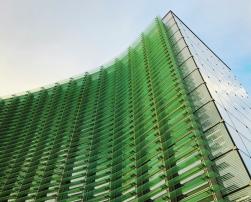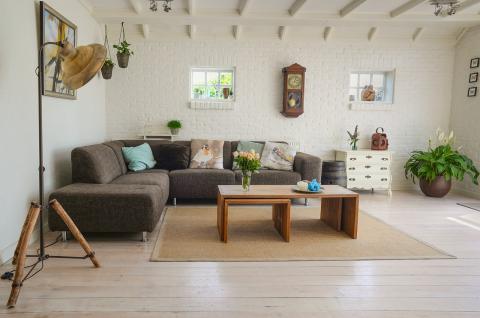Topic of the Month (October 2023)
Each month a relevant topic and several sub-topics are covered in detail. For the Topic of the Month, content following a common thread is developed by BUILD UP Editorial Board in collaboration with the Board of Ambassadors and other relevant experts in the field. This includes producing articles, case studies, webinars and more, all in line with the specific topic selected. Relevant events are also identified and highlighted.
Topics of the Month are announced at the end of the previous month in our website and newsletter. Please write us if you wish to know more about our upcoming topics of the month.

New study shows how Switchable Insulation Systems (SISs), using eco-friendly, low-cost materials, offer adaptable and energy-efficient insulation for hot climates, though simpler designs may be more affordable and effective than advanced technologies.

This report by IFC and UNEP predicts the sustainable cooling market in developing economies will double to $600 billion annually by 2050, highlighting the need for financing and collaboration.

New York City Mayor Eric Adams launched the GreenHOUSE Fund to help building owners comply with Local Law 97 by financing decarbonisation projects in affordable housing, particularly benefiting low-income residents, while also promoting improved air quality and job creation.

Within our EU-funded project Cultural-E, we are developing the PEB HUB, a community-powered by Plus Energy Building professionals working on multifamily-residential buildings.

This study reviews how façade design—through materials, geometry, and vegetation—can address urban heat, pollution, and biodiversity loss, highlighting benefits and trade-offs while identifying research gaps.

The Journal of Building Design and Environment is inviting researchers to contribute articles on improving energy efficiency, indoor environmental quality, and occupant well-being in the built environment.

The paper highlights that green heating and cooling technologies, despite their benefits, are underused in Europe due to barriers such as dependence on fossil fuels and insufficient expertise; however, targeted policies and innovations could enhance their adoption and contribute to achieving climate goals.

Households contribute 40% of UK greenhouse gas emissions, and habits like temperature preferences and window use impact energy consumption, underscoring the need for both sustainable home design and resident education.

Smart buildings reduce carbon emissions and energy costs through automation, IoT, renewable energy, and efficient systems, while enhancing occupant well-being and sustainability.

Researchers have developed a cooling fabric that, when applied to buildings, can reduce internal temperatures by mitigating heat from sunlight and thermal radiation.
